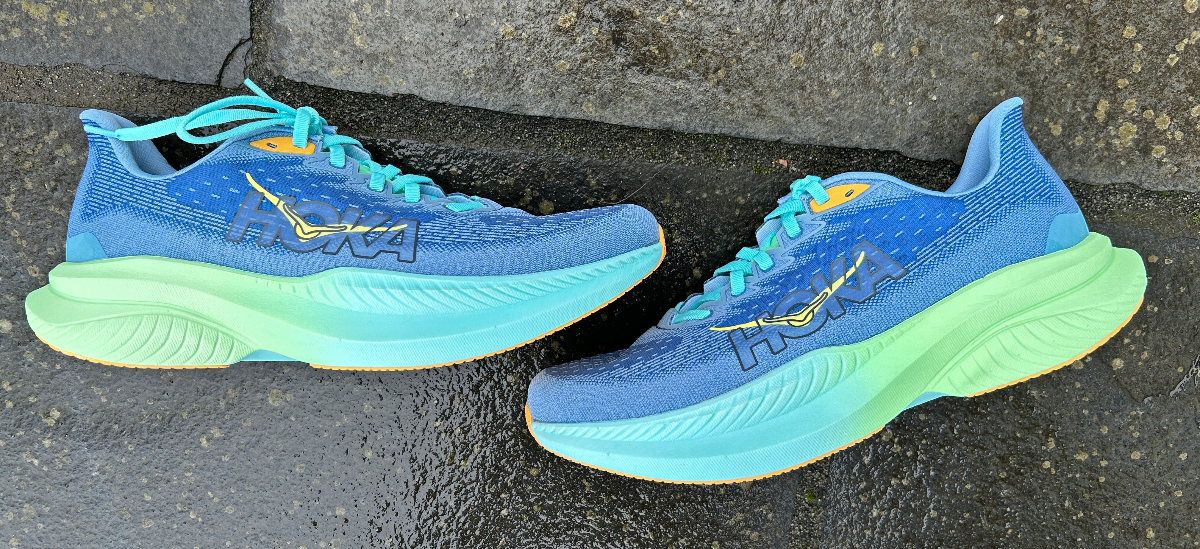Our Verdict
The Hoka Mach 6 is a comfortable and lightweight daily trainer that has enough cushioning for easy and long runs, along with some pop for faster sessions. It’s a great all-rounder, though it lacks the propulsive benefits of a plate for lengthy speedwork.
For
- Lightweight cushioning
- Versatile ride
- Now has an outsole
Against
- Narrow fit
- Not as bouncy as others
You can trust Coach
The Hoka Mach 6 builds upon the fine reputation of the Hoka Mach 5 in being a simple, lightweight daily trainer that can handle a range of training runs. It’s comfortable for easy cruises, but light and poppy enough for when you want to up the pace. The Mach 6 is a great alternative to plated training shoes like the Saucony Endorphin Speed 4 for those who’d rather run plate-free outside of races.
It’s one of the best running shoes and is in competition with the New Balance FuelCell Rebel v4 and Asics Novablast 4 for the title of best daily trainer without a plate. I think the Rebel v4 just edges the battle, but the Mach 6 is more cushioned and some may prefer it for easy runs.
Hoka Mach 6: Price And Availability
The Hoka Mach 6 launched in February 2024 and costs $140 in the US and £140 in the UK, which is the same price as the Hoka Mach 5. It’s similar in price to other daily trainers, and cheaper than super-trainers like the Hoka Mach X, which use plates and foams from the best carbon plate running shoes.
How I Tested This Running Shoe
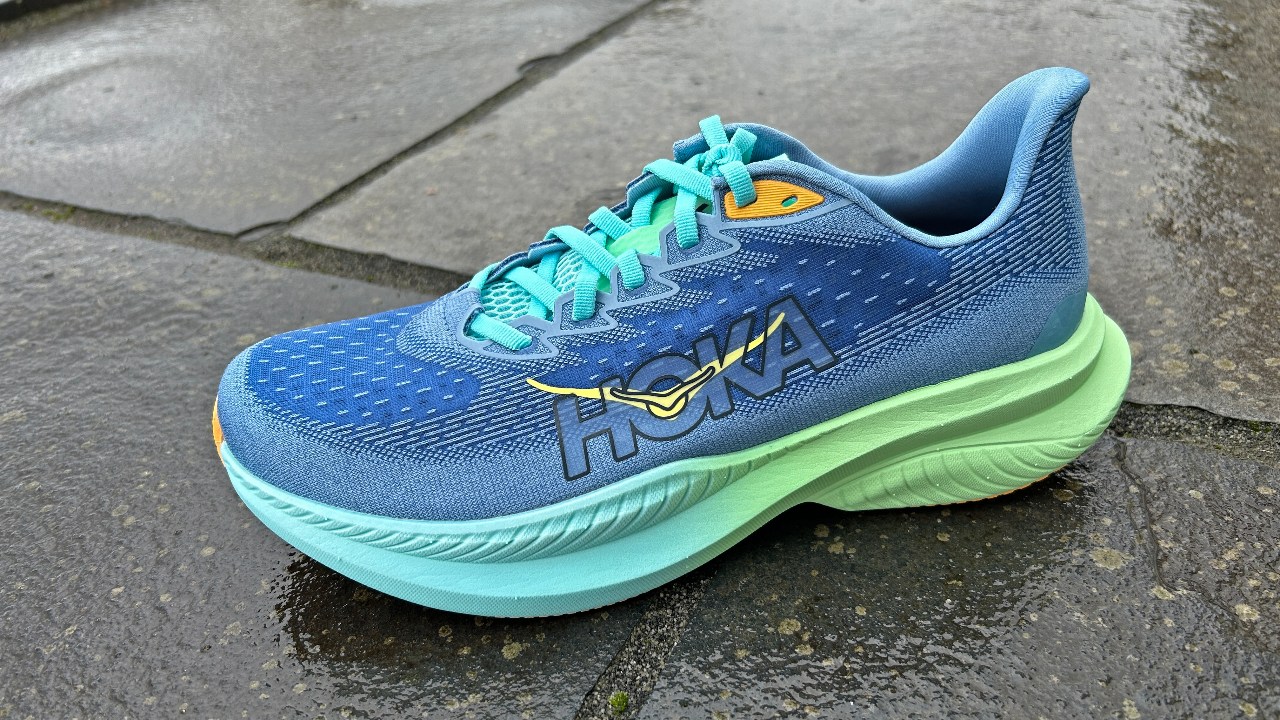
I’ve run just over 30 miles in the Hoka Mach 6, using it for a variety of training runs including an easy to steady 15-mile progression run finishing at my marathon pace. I have also tested the Mach 4 and Mach 5, and a variety of the best running shoes available from other brands.
Design And Fit
The Hoka Mach 4 and Mach 5 were excellent shoes that stuck to a similar design, with a dual-density midsole with a layer of Supercritical EVA foam on top and a standard EVA foam on the bottom—with this bottom layer also acting as the outsole since there was no rubber on the underside of either shoe.
Hoka has made significant updates to the design of the Mach 6, which now has a single-layer midsole that’s made from Supercritical EVA, and a rubber outsole, which adds weight but should improve the durability and grip of the shoe. Even with the outsole the Mach 6 is a lightweight shoe at 8.2oz/233g in my UK size 9. That’s a slight gain in weight on the Mach 5, but just a few grams, which is a fair exchange for a rubber outsole.
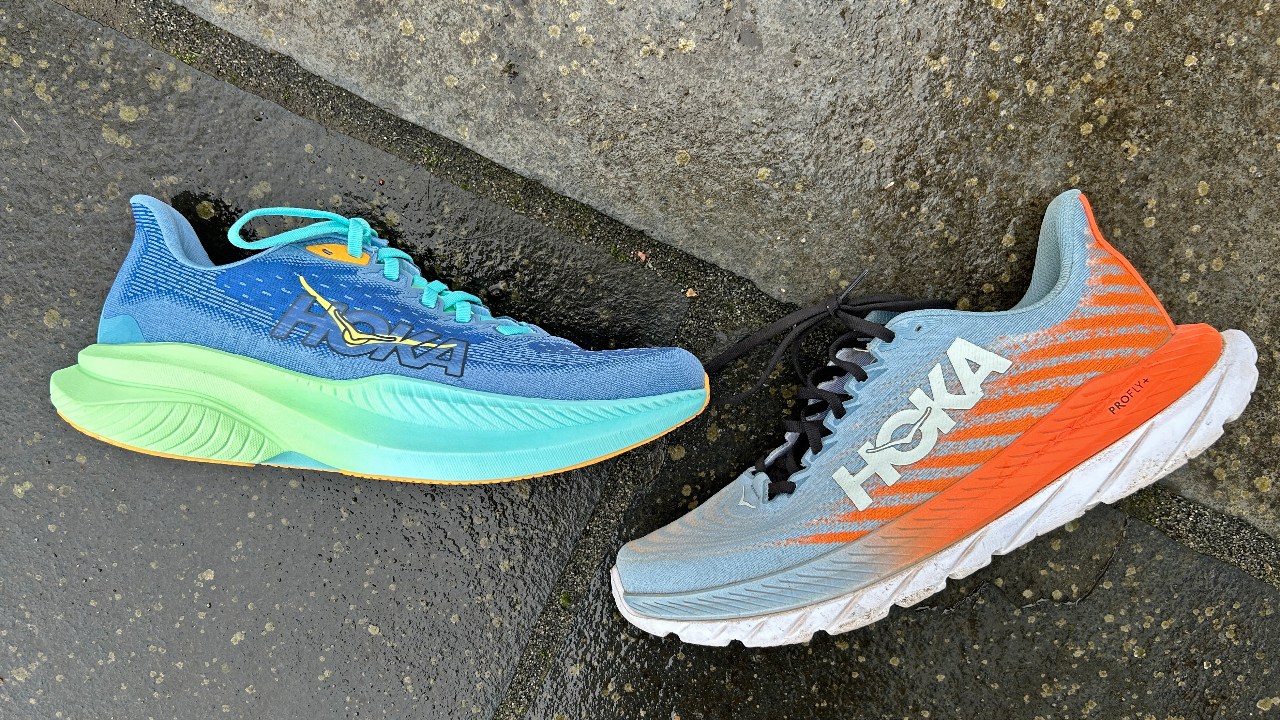
The Mach 6 has a drop of 5mm: The men’s shoe has a stack of 37mm at the heel and 32mm at the forefoot, and the women’s has 35mm at the heel and 30mm at the forefoot. That’s a lot of cushioning for such a light shoe, which is the benefit of making the midsole from the lightweight Supercritical EVA foam.
I found the shoe fitted well in my usual running shoe size, but that’s because I have a narrow foot. As with many Hoka shoes, the Mach 6 might be a bit tight around the midfoot and forefoot if you have a wide foot. The creel jacquard mesh upper is comfortable and breathable, with padding around the collar of the shoe to cradle the back of the foot.
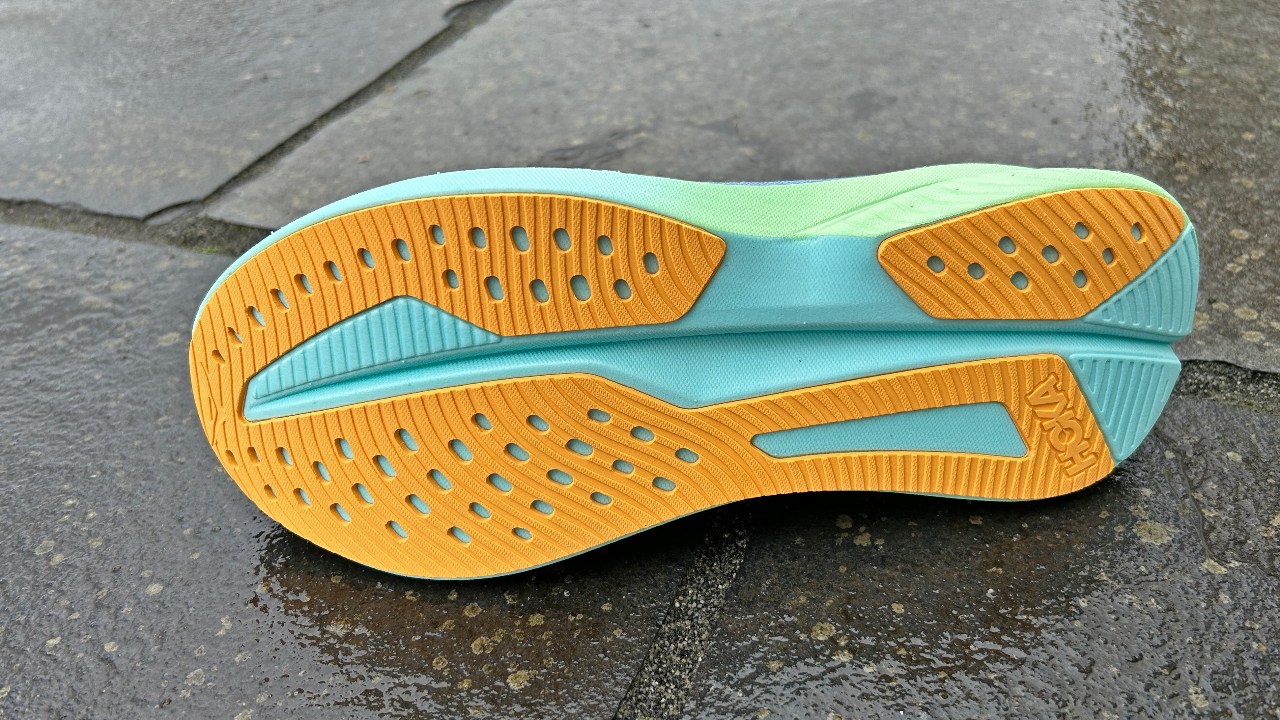
Running Performance
I’ve been a big fan of the past two versions of the Hoka Mach, with the Mach 4 and 5 offering versatility and a natural feel. By that I mean they were shoes that it was easy to forget about while running—they rolled along nicely at easy or fast paces without intruding on my thoughts.
The Mach 6 retains that admirable characteristic. It’s comfortable from the moment you pull it on and, whatever pace you’re running at, it provides a smooth ride. It’s not as explosively bouncy or propulsive as a plated shoe, but the new midsole set-up has spring in it, and the rockered shape of the shoe helps move you through your footstrike and up onto your toes.
Since it’s so light, picking up the pace feels good in the Mach 6, especially for short bursts. On my longest run I did the last five miles of a 15-mile run at sub-6min/mile pace, speeding up to around 5min 40sec/mile for the last three. While holding those paces is easier to do in a plated shoe like the Saucony Endorphin Speed 4, the Mach 6 still feels good for them, and it’s more comfortable for easy runs.
I did a couple of relaxed recovery runs and it was comfortable and stable at slow paces. It’s a shoe you can tackle almost all of your training in, and would also make a great marathon racing option if you don’t want to use a plated shoe. That said, based on performance alone I’d prefer to use a faster plated shoe for key workouts and races.
Is The Hoka Mach 6 Worth It?
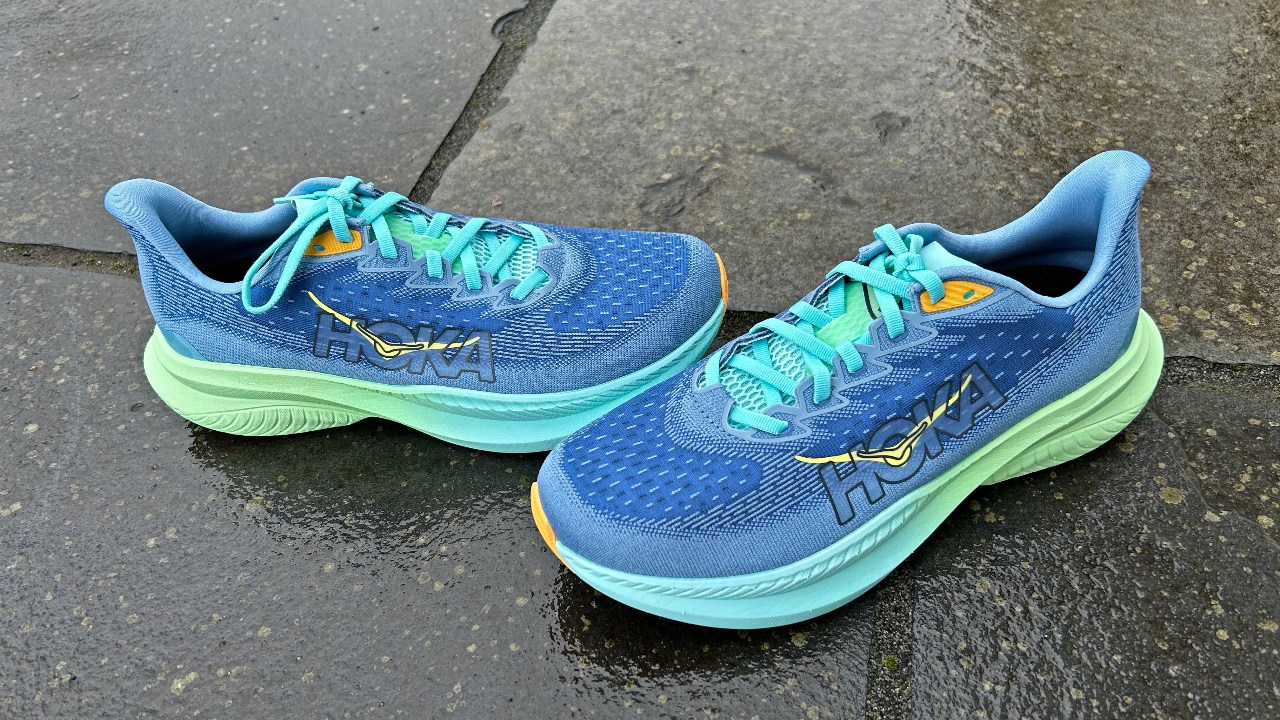
The Mach 6 is a good daily trainer, offering the perfect blend of comfort and speed and certainly an option for a running shoe rotation. That’s especially apt if you prefer to train in non-plated shoes, since the Mach 6 is one of the fastest and most enjoyable plate-free options, rivaled only by the FuelCell Rebel v4. The Rebel has more bounce and is lighter still than the Mach, but the Mach is more cushioned for easy runs,
Within Hoka’s line-up the Hoka Mach X is the plated super-trainer that you could use for the same kind of runs as the Mach 6. I prefer the feel of the Mach 6, and it’s lighter and cheaper, and so gets my vote over the Mach X. The Hoka Clifton 9 is a more cushioned and less speedy Hoka option for those who find the Mach 6 too speed-focused, though I’d prefer to be in the Mach over the Clifton.
If you are happy to use plated shoes in training then the Saucony Endorphin Speed 4 and Adidas Adizero Boston 12 are among the best running shoes with regards to versatility. They have a more propulsive feel than the Mach 6 and are better for holding fast paces, and also comfortable for easy pace runs—though the Mach 6 feels more cushioned for those.

Nick Harris-Fry is a journalist who has been covering health and fitness since 2015. Nick is an avid runner, covering 70-110km a week, which gives him ample opportunity to test a wide range of running shoes and running gear. He is also the chief tester for fitness trackers and running watches, treadmills and exercise bikes, and workout headphones.
